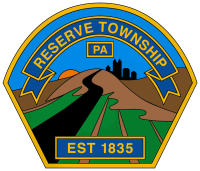PA Right to Know Law
Click here to obtain a PA Right to Know Law Form
What is the Right to Know Law?
The Right to Know Law is the Pennsylvania law that guarantees your right to access and obtain copies of specified public records held by government agencies.
What records are exempt from access?
Privileged records. Under the new law, records that are protected by a privilege, such as the attorney-client privilege or the doctor-patient privilege are not public.
Records that are expressly made non-public by another law. Records that are non-public under some other law (e.g., federal law makes student educational records non-public) are not public. Of course, the reverse is also true. If another statute makes a record public, then that record is public, and the Right to Know Law does not change that. For example, the Criminal History Record Information Act (CHRIA) expressly states that police blotters are public records. The Right to Know Law does not change this. Likewise, the law does not affect access to criminal and civil court records or voter registration records.
Right to Know Law exemptions. Section 708 of the new law contains 30 categories of exemptions. As stated above, agencies may release these records in many circumstances.
With very limited exceptions, the exemptions do not apply to financial records or aggregated data. The exemptions include the following:
- Records that, if disclosed, would result in the loss of Federal or state funds;
- Records that, if disclosed, would result in physical harm to an individual or would harm an individual’s personal security;
- Records that would jeopardize homeland security or public safety or preparedness;
- Records that, if disclosed, would endanger the safety or security of a building, public utility, infrastructure, or information storage system;
- Records that, if disclosed, would jeopardize computer security;
- Medical, psychological and related records that would disclose individually identifiable health information;
- Personal identification information, including social security numbers, personal financial information, driver’s license numbers, and home telephone numbers;
- Home addresses of law enforcement personnel and judges;
- Certain personnel records relating to public employees, including applications of those not hired, academic transcripts, and information regarding discipline (except that final actions of an agency that result in demotion or discharge are public);
- Records relating to collective bargaining strategy or negotiations, except that final contracts and agreements and final awards and orders of arbitrators are public;
- Working drafts of bills, resolutions, and policies;
- Records reflecting internal, predecisional deliberations of agencies, including internal strategies. This exemption does not apply to records reflecting an agency decision, records requesting state funding/grant money, or results of public opinion surveys or polls. In addition, records presented to a quorum of an agency for public deliberation at a meeting subject to the Sunshine Act (e.g., board packets) are public records, with limited exceptions.
- Trade secrets and confidential proprietary information.
- Notes and working papers used by a public official or employee solely for that individual’s own personal use.
- Records that would disclose an agency donor, except under certain circumstances;
- Unpublished academic materials;
- Academic transcripts and examination materials;
- Criminal investigative records. This exemption does not apply to information contained in a police blotter or in a traffic report (except for in-depth accident investigations);
- Non-criminal investigative records. This exemption does not apply to fines levied by agencies, license revocations, settlement agreements, or similar agency actions;
911 records, except that time response logs are public, and agencies can disclose 911 recordings or transcripts if the agency or a court determines that the public interest in disclosure outweighs the interest in nondisclosure; - DNA and RNA records;
- Autopsy reports, except that name, cause, and manner of death of a deceased individual are public;
- Draft minutes of an agency until the next meeting and minutes of an executive session;
- Real estate appraisals, environmental reviews, audits or evaluations relating to an agency’s proposed lease, acquisition, or disposal of real property. The exemption no longer applies once the decision to lease, acquire or dispose of the property is made.
- Library circulation records and certain archived materials;
- Records identifying the location of an archeological site or an endangered or threatened plant or animal species if not already publicly known;
- Proposals relating to agency procurement or disposal of supplies, services or construction prior to the award of the contract or the opening and rejection of all bids. Financial information of a bidder or offeror;
- Communications between an agency and its insurance carrier, administrative service organization, or risk management office. This exemption does not apply to contracts between agencies and these entities or to financial records relating to the provision of insurance;
- Records identifying individuals who apply for or receive social services or disclosing the social services received by an individual.
- Correspondence between a person and a legislator that would identify a person requesting assistance or constituent services. This exemption does not apply to communications from lobbyists.
- Records identifying the name, home address, or date of birth of a child 17 years of age or younger.
